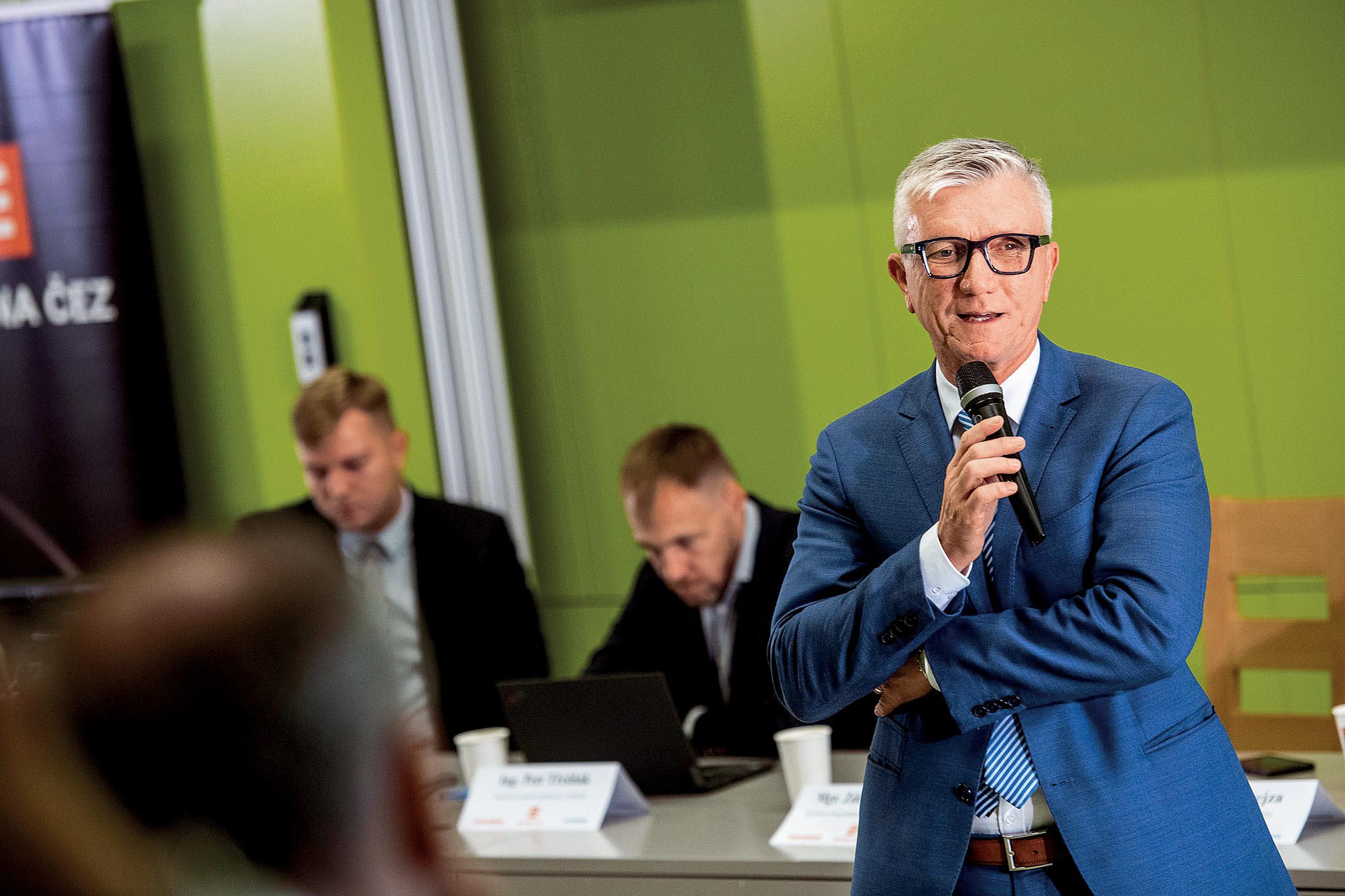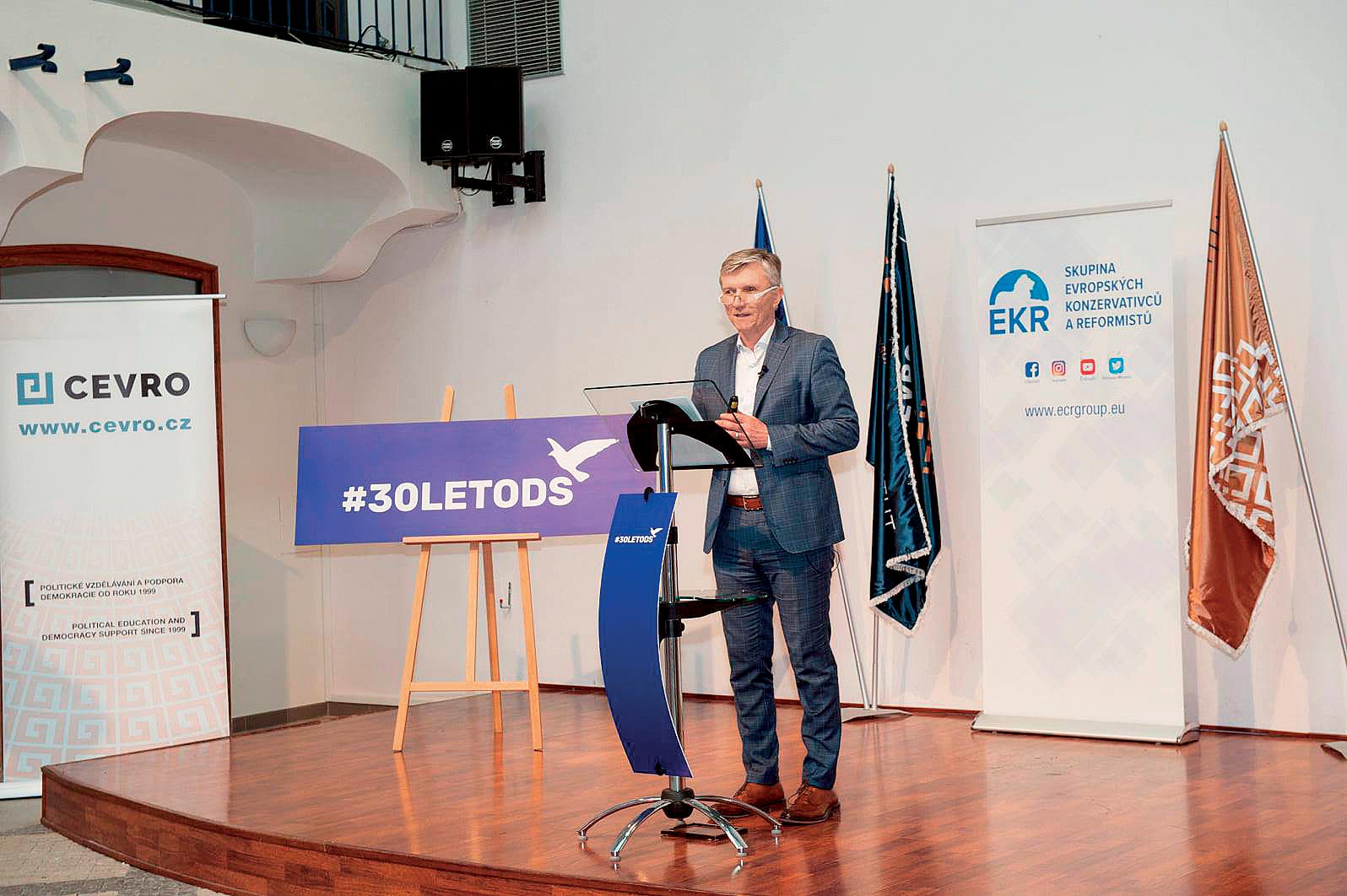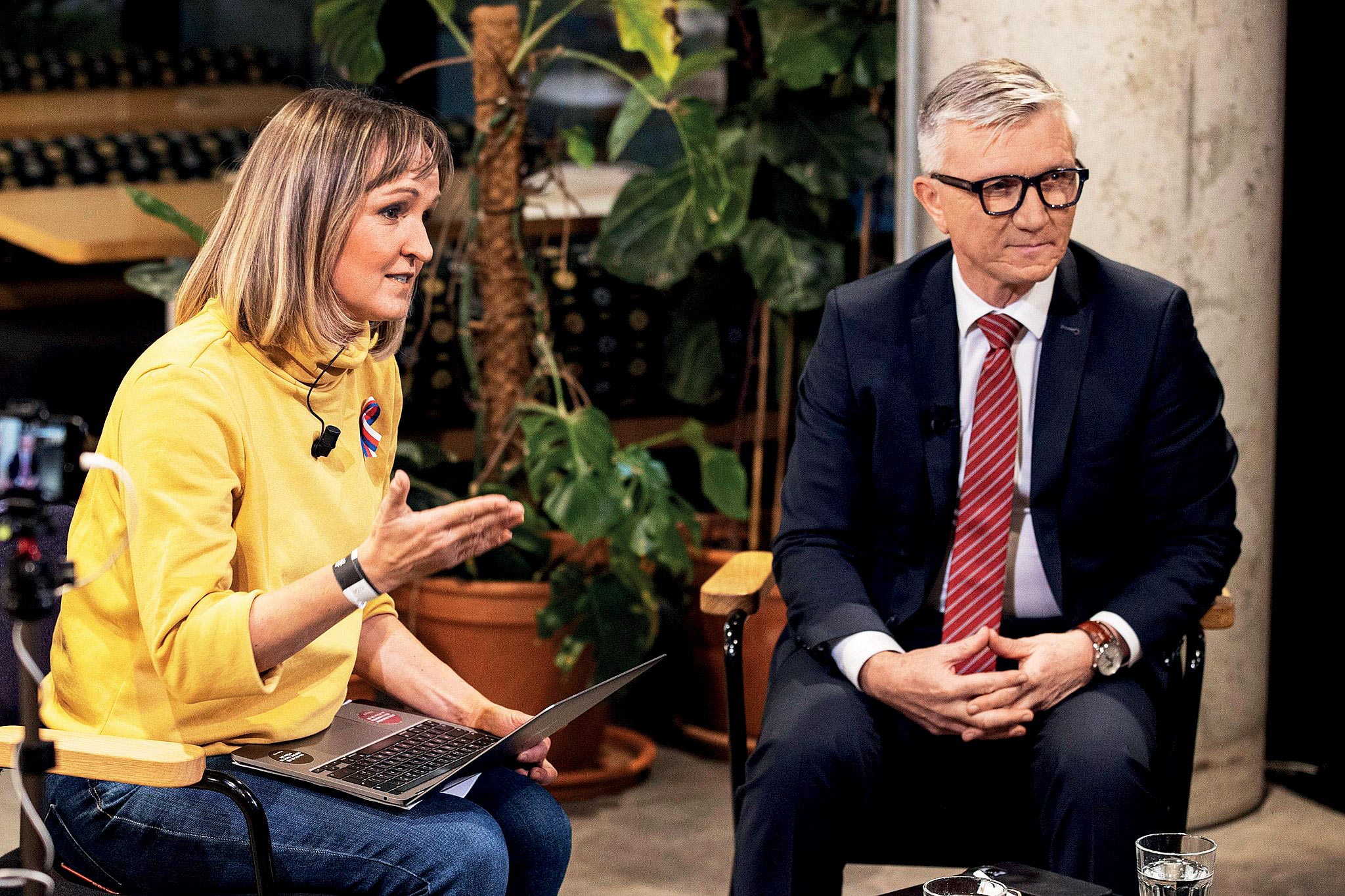Energy prices, inflation, the government package, state debt, the lack of workforce, the level of wages... What state the Czech economy is in, what the prognoses are, and what must be done, the president of the Chamber of Commerce Zdeněk Zajíček speaks about all of that, and more. He will cover some topics on the following lines, some he will assess in the continuation of this interview in the next issue.
What state is the Czech economy in?
Czechia is at a crossroads, and it is not only my thinking that it finds itself at a key turning point in its modern history. Our country grew largely thanks to quickly and boldly opening up for business, the influx of foreign investments, and using technological processes in its production that effectively used competences, skills, and attractive cost of labor. As a traditional and developed country in the heart of Europe, we became a natural repository of goods and services for Western countries, and we became an interesting and reliable partner in the production chain. But all of these existing factors of our growth have been exhausted, after 2009 our economy lost its momentum. It lost competitive advantages, and got caught in the so-called middle income trap. As a result of that our country might, and, according to different prognoses, will economically stagnate in the long term, which can result in slowing down the growth of wages, the standard of living, businesses leaving for countries with lower expenses, and a more attractive business environment. In other words - with the current structure of our economy, further matching the level of more developed countries will be very difficult. I am an optimist, though, and I think we still have a chance to turn this trend around, and reclaim a more significant economic growth, which might keep us among the highly competitive countries in Europe and in the world. But this requires coming up with bold transformative and reformative steps, be it in the public or the private sector. It would be optimal if these necessary changes found broader societal and political support. None of that can be organized and finished within the tenure of a single government. It must become a national interest, and a joint project for the next ten, fifteen years.

Will the fairly quick fall of inflation, predicted by economic experts for this year, help anything, and was it already reflected in January figures?
The reason for high consumer prices is mainly the jumps in prices of electricity and gas. We are one of the most industrial countries in the European Union, more industrial than Germany, and on top of that, our industry is more energy intensive than in other European countries. That’s why the energy crisis hit our economy harder than others. But if the Czech economy is to reach the level of Western countries, it will have to finish two pieces of homework, which are interconnected. One will be to escape the middle income trap, so moving towards production with higher added value, but also to fix neglected issues and invest in strategic areas. When it comes to added value, our current economy generates mostly low added value. Comparing it on an international level, the added value generated in Czechia is actually one of the lowest in the entire European Union, we are at number 24 out of 27 countries. Moving towards a production with higher added value will require investment and innovative action from the state, as well as the private sector. And that gets us to the second part of our homework - solving the long neglected issues of our economy, which make Czechia unattractive from the investors’ point of view, lower the competitiveness of our businesses, and therefore make our “escape” out of the middle income trap more difficult. An example of this would be the slow construction of energy, transport or data infrastructure, inaccessibility of rental housing, the quality and effectiveness of education, the lack of qualified workforce, the excessive administrative burden on business, as well as the slow enforceability of the law. In any case, the fall of inflation in January is a good sign for businesses as well as households. That could help jumpstart at least a small economic growth, which could be based on the increased consumption in households. However, for a significant change in economic growth in the business sector, further impulses will be required, as I’ve mentioned.
Is the government austerity package something that dashes the hopes of economic rejuvenation in this year?
The state of public finance and total state debt both play a role in the investment activities of businesses. The trend and dynamics of debt both grew significantly, which must be a warning for us. The development of public finances fundamentally affects the expectations of business subjects and their investment decisions, but also investors purchasing state bonds, which the indebted state uses to finance itself. A responsible state economy is a key for the future, and that’s why we welcome the bold and politically unpopular step of the government towards consolidating public finances, even though we might have disagreed with certain measures, or repeatedly drew attention to their low effectiveness. What we consider much more important for the future of the Czech economy, though, is solving the debt we have in key strategic areas, mainly energy and the transport infrastructure. Balancing these investment requirements while also remaining a fiscally responsible state is a real challenge. That’s why we’ve started talking about a new viewpoint on the structure of expenses from the state and public budgets, and the option to at least visually separate the investment budget from the common operating one. State investments such as these, as well as private ones, will all have an influence on the competitiveness of our country, and will support economic growth, which will raise the future ability of our state to pay mandatory expenses and repay the public debt, among other things.

In 2021, at the conference celebrating thirty years of the ODS party.
How do the comparably high energy prices influence these current issues? Is it true that not just Czechia, but the entire European Union, is becoming almost uncompetitive due to that?
Czechia is losing its competitiveness compared to other countries in the European Union. And the Union is losing competitiveness compared with the American and Asian economies, mainly due to bloated bureaucracy and far from ideal conditions for strategic investments, which it is now trying to make up for in chip manufacturing. But it’s clear that when it comes to attracting businesses over to their territory, the American administration is more successful than the European one, be it the return of American companies to the USA, or the influx of new companies from the rest of the world. Energy prices play a thoroughly significant role in that, and will continue to do so. But it will also be the ability to mobilize private capital, and create predictable and motivational conditions for it. And they don’t always have to be investment incentives or subsidies, which often end up deforming the business environment. On the other hand, we must offer these investment incentives even in our preferred strategic areas, because the other countries do so in this merciless competitive fight. Otherwise the chip manufacturing or other hi-tech companies with high added value won’t come here, or even leave. That is the unfortunate reality.
Might the investments in nuclear power not actually conserve energy prices in Czechia?
According to the ČEPS (Czech electricity transmission system) surveys, energy consumption will increase to double its amount in the next twenty years, not only in Czechia, but also other EU countries. Czechia will cease to be energetically self-sufficient before the year 2030, it will have to import energy. According to the SWOT analysis presented last year to the government by business organizations, our country might actually cease to be energetically self-sufficient by 2028. The government Committee for strategic investments under the leadership of Prime Minister Petr Fiala discussed this analysis, and concrete measures are being developed, which might be able to change this trend. The energy demand in Czechia will continue to grow, and due to high permission fees, coal power plants might have to be shut down before 2030. Delivering wasteful electricity and heat from coal will simply not be worth it anymore. For the country to retain energy self-sufficiency, it will have to increase available power in its territory. That will only be possible if new energy sources for electricity and heat are built. That’s why the Chamber of Commerce recommends the state increase the attractiveness of its investment environment in energy and related sectors, mainly in the use of gas and hydrogen. Both in the short and the long term, gas is the only certainty for supplementing the missing capacity, thanks to its availability, operability of use and technological predictability and readiness. Simply put, we can not only build a steam power plant or heating plant, combined operations included, fairly quickly, but we can also operate and maintain it, and essentially switch it on and off based on the energy demand, and most of all, we are capable of ensuring gas supply from different sources, and not becoming dependent on just one of them. We have to realize that the lack of new sources of electricity and heat might significantly endanger our energetic safety and sovereignty, even before 2030 comes around. That’s why we mustn’t let up in building new nuclear sources, and searching for options to participate in developing small modular reactors. At least until those are operational, we won’t be able to live without new gas sources, which, the way I see it, we must start building immediately, and adapt all authorization processes accordingly.
The Author is a European editor for Deník

With the Seznam. cz host Marie Bastlová during the recording of the Ptám se já (My turn to ask) podcast
ADOPTING THE EURO
To adopt or not to adopt the Euro? This is a frequently asked question these days. What‘s Zdeněk Zajíček‘s answer? “In the Chamber of Commerce, we conducted an investigation among businesses, in 2017 and then again in 2022, to find out if they consider the question of adopting the Euro so pressing that the government should set a fixed future term for its adoption. The five years between the investigations didn‘t change the position of the businessmen - three quarters of the members of the Chamber of Commerce do not consider the question of adopting the Euro a current priority. That certainly doesn‘t mean that 75 percent of businessmen are staunchly against adopting the Euro, it simply means that they don‘t consider the existence of the Czech crown a significant barrier against local development. They mostly have an issue with different obstacles, mainly the state of our labor market, so labor costs not matching the growth in labor productivity, the lack of employees with the required qualifications, and the uncertain availability and acceptability of energy prices. Furthermore, the bloated business regulations, mainly in the confusing amount of administrative and other responsibilities towards the state. Businesses consider removing, or at least mitigating these barriers, more beneficial for their business than adopting the Euro.
CV BOX
Zdeněk Zajíček (born on the 10th of May 1967 in Prague) is the president of the Chamber of Commerce of the Czech republic. He is also the representative for Prague, and has a seat on the CEVRO Institute supervisory board.
He graduated from the Faculty of Law at the Charles University. Starting in 1991, he worked at the City Prosecutor‘s Office in Prague, then at the Ministry of National Property Management, and the Land Registry.
In 1996 he was elected into the Chamber of Deputies for the ODS party, but resigned the mandate two years later. After that, he was the director of the Prague City Hall, and worked in advocacy as well. Between September 2006 and summer 2013, he was successively deputy minister of the interior, justice and finance.
He has been involved in, among other projects, the Czechpoint, the Data box, the Treasury, Bank Identity, and others. He is the founder of the eState association.
He‘s been the representative for Prague since 2018. He‘s been the president of the Chamber of Commerce since 2023.
He was once an active basketball player. He enjoys jogging, biking or rollerblading, he plays tennis, likes to ski or play golf. He is married, has three adult sons and two grandsons.